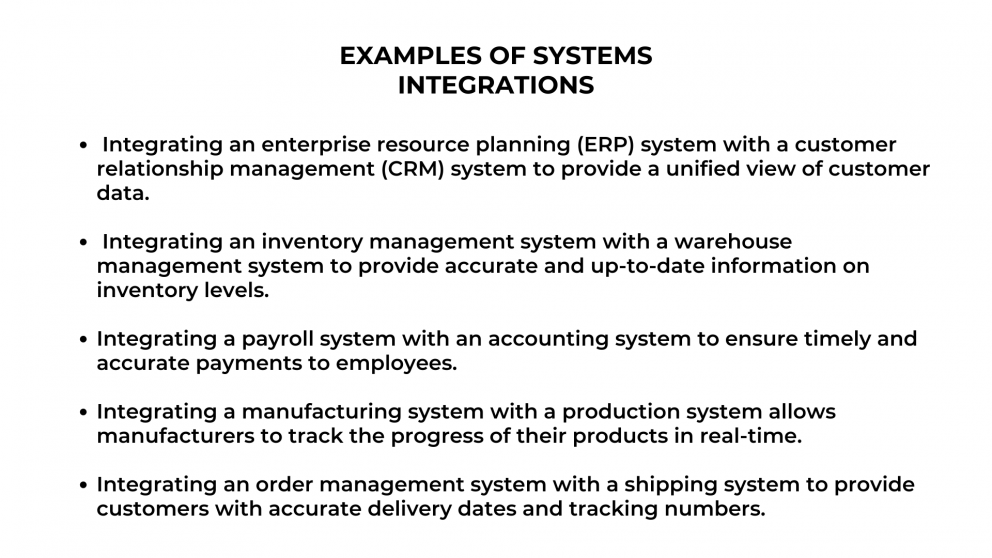Creating a 3-5 Year Strategic Plan for Your MSP or Technology Business in 11 Steps
January 6, 2023
Writing a 3-5-year strategic business plan helps to set long-term goals and objectives and then…

At C4, we know that if you’re not playing an infinite game, you risk becoming irrelevant. We can all remember companies like Blockbuster, Sears, and Myspace that failed to innovate, eventually causing an exodus of customers.
Digital transformation is now evolving to include Machine learning, AI, edge computing, automation, augmented reality, IoT, and much more. These can enhance the growth of your MSP as you manage more devices and things while adding greater value to your customer.
Organizations hire you to optimize their technology so that they can streamline their businesses. As they begin learning and having conversations about new tech, they will come to you, their trusted technology advisor, for answers. If you don’t have the solution, they may look for it somewhere else, costing you your current business as well.
Customers are ready to spend money in 2023 on the right technology. Their needs are growing more complex with their IT environments. Everyone knows it’s much easier to upsell a current customer than find a new one.
Forward-thinking MSPs are paying attention this year to how they can create new revenue around the following categories to grow their business as well as stay agile in facing today’s business challenges.
Private 5G enables businesses to create their own dedicated wireless network. It provides faster speeds, reduced latency, increased capacity, greater security, and more control over the network than traditional public networks, making it ideal for businesses that need to securely manage their own data and communications. Private 5G networks can also be used to connect multiple locations and many devices, allowing businesses to have more reliable mobile networks.
The U.S. private LTE & 5G network market size was valued at 2.12 billion in 2021 and is expected to grow at a compound annual growth rate of 24.1% from 2022 to 2030 (Grand View Research, 2022).
As Industry 4.0 momentum reaches peak velocity, resourceful businesses are taking wireless networking well beyond Wi-Fi to solve critical challenges. 5G is the foundation for a myriad of use cases in almost every industry, setting the stage for enormous opportunity.
The desire for businesses to offer more engaging customer experiences, gain more value from data, cut costs, and find new revenue streams are driving the adoption of 5G. Private 5G can help businesses access the Internet of Things (IoT) to improve their business processes, increase efficiency, and better manage their resources.
The verticals that we see leveraging 5G are manufacturing, logistics, agriculture, healthcare, entertainment, hospitality, education, the public sector, and more.

Private 5G is an exciting opportunity for service providers to find new revenue streams and deliver more value to their existing customers as well as garner the attention of new ones.
Business automation can be a great way to maximize efficiency and cut costs for clients. You’re probably helping them in this area already. Some exciting use cases include automating customer service and support, inventory management and restocking, data entry, analysis, and reporting. Automation can also be used to streamline back-end processes, like payroll and accounting. Automation helps reduce manual labor costs while freeing up resources to focus on more creative, strategic initiatives. Ultimately, automation can help businesses improve their bottom line.
Automation requires the use of software, robotics, IoT devices, artificial intelligence (AI), and the right strategy.
Systems integration and consolidation can both be useful tools for businesses to streamline processes and improve efficiency. However, they are two different approaches. Systems integration is the process of connecting two or more systems to enable them to share data. Consolidation is the process of combining two or more systems into one system. Each approach has its own advantages and disadvantages, so it's important to consider the needs of a business before deciding which one to use.
Out-of-the-box solutions aren’t right for everyone. Gaps in technology create costly workarounds. Customers are sometimes frustrated with needing to adapt their business to a “one size fits all” solution.
Systems integration is the process of linking together different computer systems, software applications, and hardware components so that they can communicate and share data with each other. This enables organizations to use existing systems and technologies in a more efficient and effective way. By leveraging the power of systems integration, MSPs and IT providers can create solutions that are tailored to their client’s specific needs.

Software consolidation is the process of combining multiple software systems into one. This can be done to improve efficiency, reduce complexity, and save money. Examples of custom software consolidation include combining multiple customer relationship management (CRM) systems into one, combining multiple enterprise resource planning (ERP) systems into one, and combining multiple accounting systems into one. Consolidating software can also help reduce redundancy and ensure data accuracy.
Custom software consolidation typically requires code in order to implement the desired features. It is important to note that software consolidation might also require a certain level of integration.
Today, it is easier and faster to implement custom solutions to improve functionality gaps and increase value. The pay structure for out-of-the-box software can be expensive over time. Sometimes a custom solution can be a great way for you or your clients to save money as well.
A custom software partner can help you with automation, systems integration and software consolidation, as well as build custom software solutions and applications. The number of IoT devices is expected to grow to over 30 billion by 2025. AI, ML, and VR adoption is also growing rapidly. Apps, which implement a lot of the work around IoT devices are going to become more necessary, increasing the need for custom software solutions.
Custom software can help bring your client’s legacy systems up to date so that they can eliminate more manual tasks and automate processes to improve both the employee and customer experience. With so many employees working remotely, mobile apps are becoming more important and commonplace in the workplace as well.
If your client has a specific request for an IoT application, automation, or integration, a custom software partner can help you to meet their needs.
As you know, internet connectivity is crucial for today’s business operations. Even a small amount of downtime can trigger a chain of negative reactions greatly impacting business continuity.
Diverse internet redundancy involves the use of multiple internet providers, such as different cable, fiber, DSL, and satellite, to ensure that if one connection fails, the other will remain active. This helps to minimize the risk of a complete internet outage, which can be costly for businesses. Additionally, diverse internet redundancy can help to improve network performance, as multiple connections can provide faster speeds and better reliability.
There are several types of diverse internet redundancy that are used to ensure reliable and secure internet connections. These include diverse routing, diverse power, diverse media, and diverse hosting. Diverse routing involves having multiple internet service providers (ISPs) and multiple routers, so if one is down, there is another to take its place. Diverse power refers to having multiple power sources to keep the internet connection running in the event of a power outage. Diverse media involves using different kinds of wires, like copper and fiber optic, to ensure connection redundancy. Lastly, diverse hosting means having multiple hosting locations in different areas, so if one is down, the other can take its place.
Satellite internet can provide a great benefit to almost everyone, especially those living in remote or rural areas. We see this becoming more important in 2023, as it can provide a faster connection and is often more reliable than other internet sources. It is also often more affordable than cable or fiber internet, and faster with speeds up to 25 Mbps. Finally, satellite internet can usually be installed quickly, allowing users to access the internet almost immediately.
We’re embracing the latest in cutting-edge technology so that our partners can remain competitive in an ever-evolving industry. No service provider is great at everything. Partnerships allow you to offer more solutions that help organizations transform their operations through digital transformation. At C4, we can help you leverage strategic partnerships to deliver innovative solutions as you grow and build shareholder value in your own business.
Stay tuned for our next webinar series or reach out to a member of our team today to learn more about growing your technology business.
Written by Holly Mack